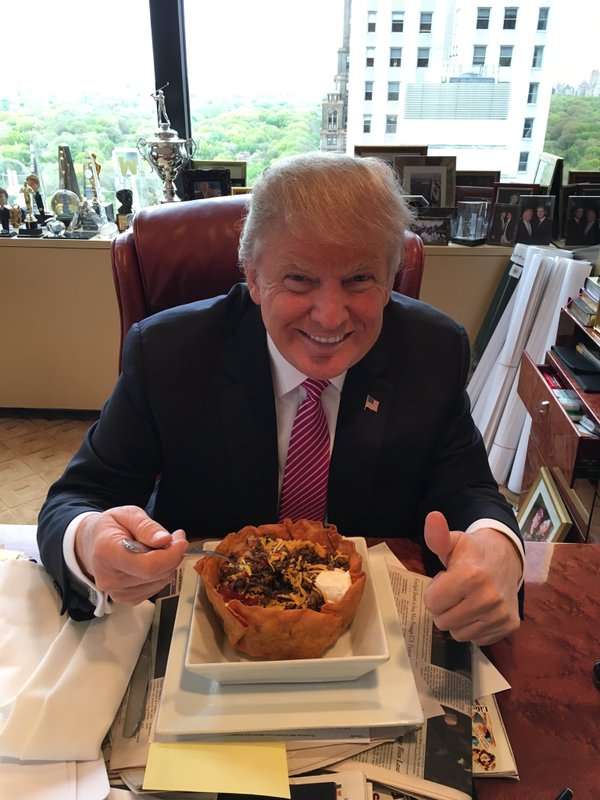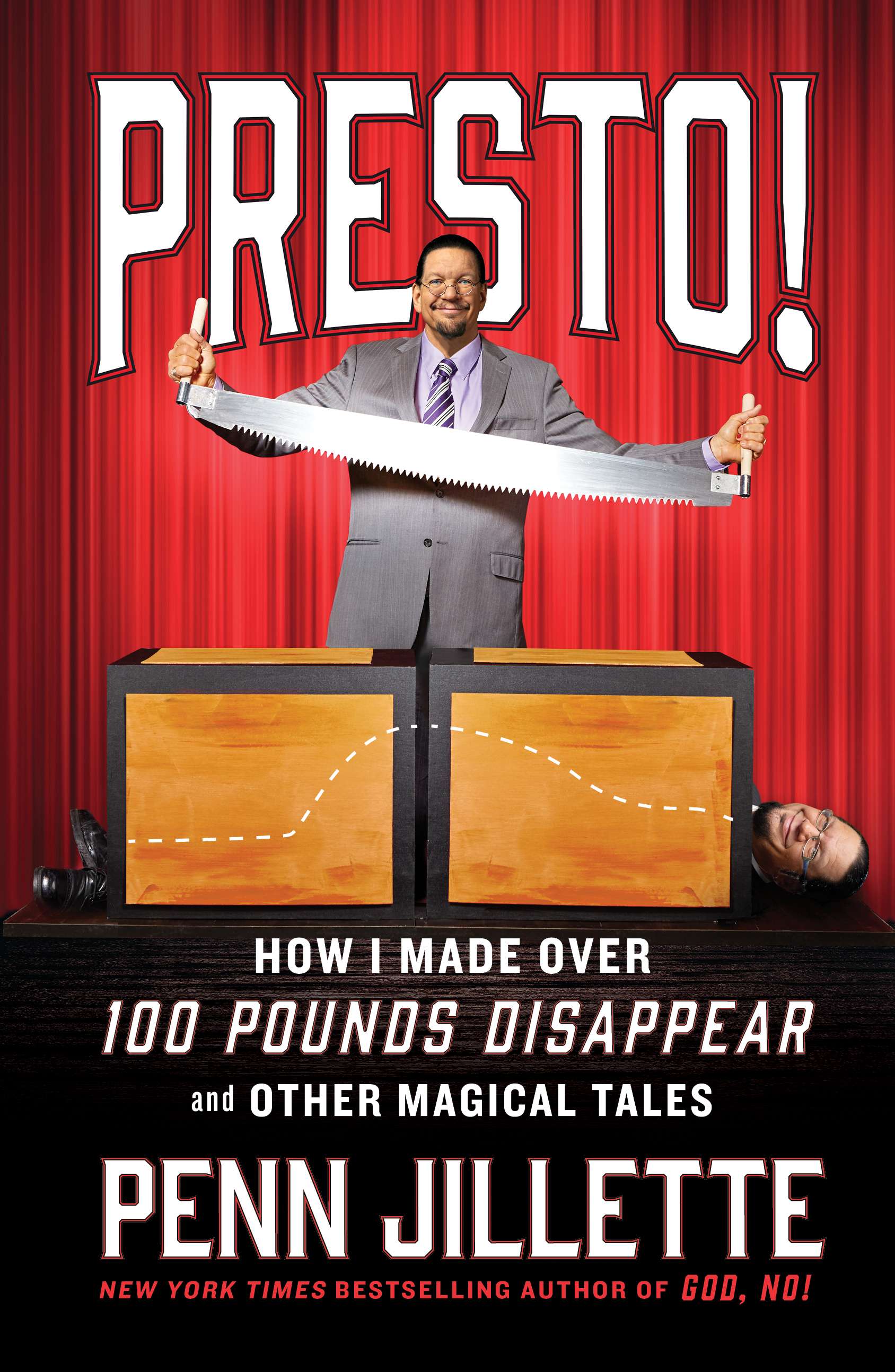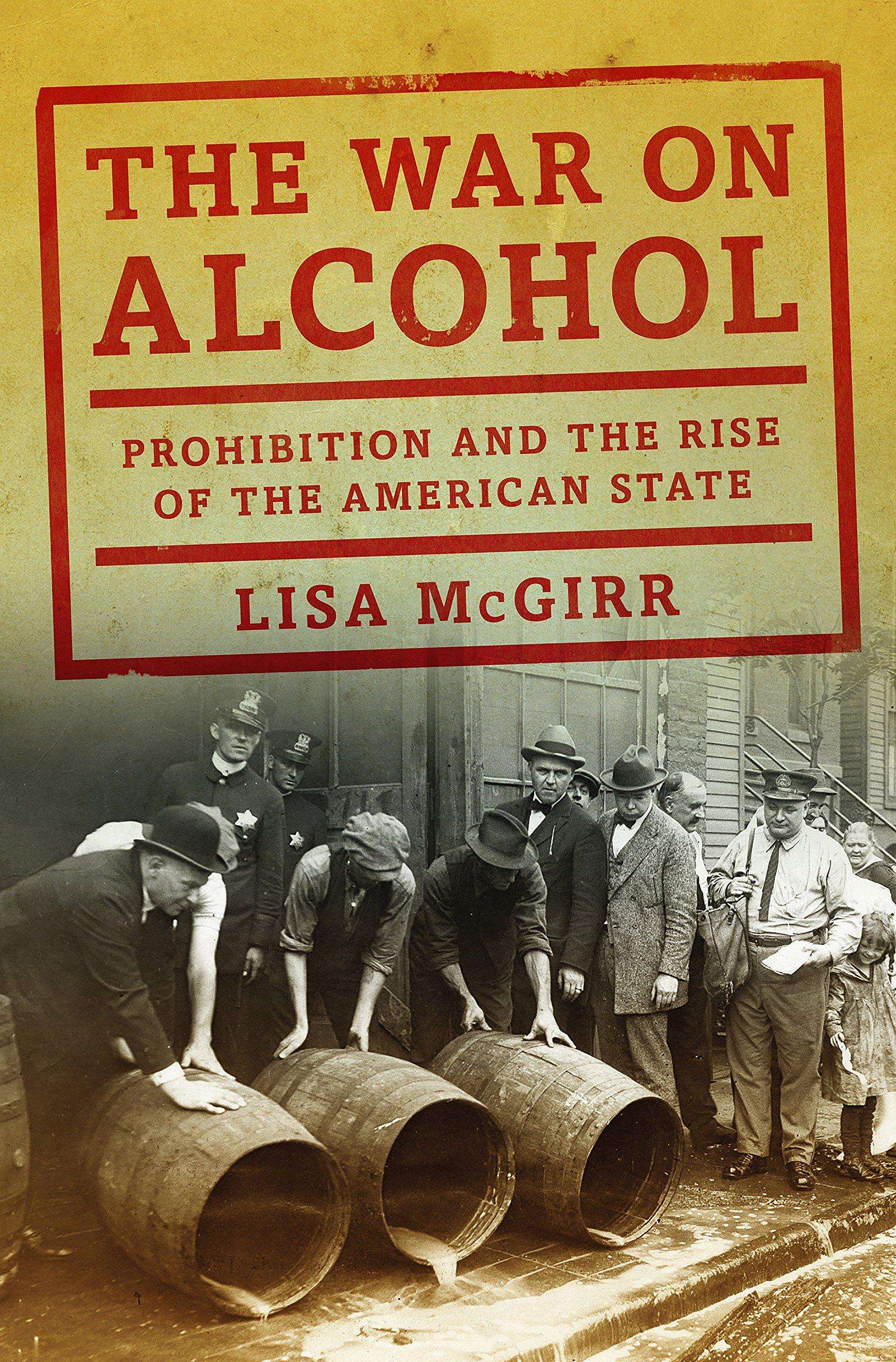2 Books To Help You Thrive in Trump's America!
Penn Jillette's diet memoir and a Harvard historian's take on Prohibition are essential guides to the next four years.

I didn't vote for Donald Trump (I proudly voted for Gary Johnson, thank you very much) and I do worry about some (most?) of his policy ideas. Yet unlike many progressives, liberals, Democrats, libertarians, conservatives, and #NeverTrump, I'm not trembling in fear or quaking in anger over the transfer of power that happens on January 20. Part of the reason for my lack of pants-wetting is because of two books I've read in the past year. Neither is specifically about Trump—or even contemporary politics—but each holds some great lessons about how to deal broadly with the billionaire developer and the bigger question of out-of-control government power.
Penn Jillette's Presto! How I Made Over 100 Pounds Disappear and Other Magical Tales is a lean, mean diet memoir by the well-known magician that is leavened with tales of his two tours on the Trump-hosted Celebrity Apprentice. You'll not only learn how to go cold turkey from what Jillette calls the "Standard American Diet" (or SAD!) but get a strong sense of what makes the Donald tick. The other is a sobering book about the long-range hangover from the "noble experiment" in banning booze during the 1920s. Harvard historian Lisa McGirr's The War on Alcohol: Prohibition and the Rise of the American State is a tour de force of deep, serious research and analysis that's also a real page-turner. Most important to the current moment, she documents how federal powers don't ever really disappear. Instead, like parasites they find a new host to do their bidding after their original purpose is served.
Presto! begins a couple of years ago, with Jillette weighing in somewhere north of 330 pounds (folks that fat, he notes, stop weighing themselves). After years of high-blood pressure, self-delusion about what a "fat fuck" he had been for years, and a serious cardiac event, he's given an ultimatum by his doctor to lose lots of weight in six months or submit to stomach stapling. Jillette follows the diet advice of his friend Ray Cronise, a former NASA engineer turned nutrition guru. He eats nothing but plain potatoes for a couple of weeks and then slowly adds back other vegetables, fruits, and whole plants, all while losing almost a pound a day. Once he hits his target weight of around 230 pounds, he settles into a version of the "nutritarian" approach elaborated by Joel Fuhrman, the medical doctor behind Eat To Live and an ever-expanding web empire. It's a rollicking and profane story of self-control and literal and figurative reinvention. "The kind of guy I am," writes Jillette, "if I couldn't eat nothing, I was going to eat everything….There is nothing fun and sexy about moderation. To be thin, I needed to find a way to make my diet as extreme as my other lifestyle choices."
But what about Trump? As a very public libertarian who supported Gary Johnson throughout the presidential race, Jillette had little love for the Democratic nominee. "Eating pizza is voting for Hillary Clinton," he writes, meaning that casting a ballot for her would be the equivalent of one of his old comfort-food binges during which he would slather a hunk of cheese with peanut butter while driving to The Cheesecake Factory and eating two entrees and a dessert or three before heading to the movies and downing a bucket of buttered popcorn in which he's tossed a boxful of Milk Duds. And yet, he has warmer feelings for her than his TV boss on Celebrity Apprentice (indeed, in a complicated vote-swapping gambit, he actually voted for her in tightly-contested Nevada in exchange for a dozen other people voting for Johnson). "I really thought there could be no one worse than Hillary Clinton, and there is no one worse than Hillary Clinton except Donald Trump." Jillette likens Trump's hair to "cotton candy made from piss" and that's the closest he comes to a compliment.

Trump, Jillette says in a characteristic passage, has "filled our country with embarrassment, hate, and fear…fuck Trump in the neck." Presto! doesn't suggest that we can simply shed Trump the same way Jillette lost weight, but there's a clear lesson that we can at the very least take control of our own bodies and lives in profound ways that minimize the ability of Trump (or any other politician) to screw us over. And we can remain outspoken in our defiance of illegitimate power, wherever we find it. "Everything you love in life, everything you're proud of, you had to work for," he writes. "Live outside the law."
That's often easier said than done. Indeed, Lisa McGirr's profoundly disturbing The War on Alcohol underscores the high price paid by many of the people who did live outside the law during Prohibition. In New York (state and city) under the governance of Al Smith and Franklin Roosevelt, the ban on liquor wasn't particularly harshly enforced, but other parts of the country were a different story. Part of the power of McGirr's account is that revises our understanding of Prohibition as a set of rules that were widely scoffed at. In many—perhaps most—parts of the country, there were no loopholes to enforcement, especially if you were poor, female, immigrant, or black. Indeed, Prohibition is best understood as a means by which Progressives and Ku Klux Klanners alike could control undesirable behaviors and populations. "I believe in Prohibition" declared Eleanor Roosevelt in 1930 while Progressive leaders railed that "Alien illiterates rule our cities today; the saloon is their palace; the toddy stick their scepter." A Dallas-based Ku Klux Klan paper spoke in similar terms of the "fight…against the Homebrew and the Hebrew."
Prohibition, writes McGirr, gave rise the first truly national forms of law enforcement and, as important, to a then-unprecented state and federal prison boom. What became the FBI was empowered by Prohibition and so were other federal agencies that were created to enforce national liquor laws. When "the war on alcohol was over…the expansion of state authority that the war had engdendered…did not disappear; it merely lurched forward in new directions." The war on booze explicitly morphed into a war on drugs, with different "illicit" substances being identified with different sub-populations (marijuana was a Mexican threat, cocaine a Negro menace, opium a uniquely Chinese vice). Richard Nixon reinvigorated the war on drugs as part of his "law and order" campaign promises, but every president since Nixon, whether liberal or conservative, has increased the amount of money, resources, and prison beds for drug offenders. McGirr says that Prohibition was figuratively a "dry run" for the drug war by giving rise to a "carceral state" which has resulted in the United States holding the dubious honor of being the world's greatest jailer-nation.

Which brings us yet again to Donald Trump, who explicitly called back to Nixon by announcing he was a "law and order" candidate. It's not simply, or even mostly, drug laws that empower the president of the United States in the 21st century to do whatever he pleases. First under George W. Bush and then under Barack Obama, we've witnessed an incredible expansion of executive-branch power in which secret interpretations of law gave rise first to torture and later to a "secret kill list," among other awful things. Presidents no longer even pretend to consult Congress when engaging in war-making, for instance, and the use of so-called signing statements, executive actions and orders, and the use of recess appointments vastly multiplied first under a Republican and then a Democratic president.
And now whatever power has accrued to the Oval Office will be at the service of Donald Trump, a man who has shown little interest in or patience for limits on his behavior. Beyond telling the stories of people who had been ignored in previous histories of Prohibition, The War on Alcohol lays out why it's never a good idea to cede power to the government simply because you agree with the people wielding it at the moment. Sooner or later, McGirr's book reminds us, your enemy is going to be king of the hill.
That's the whole point of a principled libertarianism, which argues for a limited government, regardless of who is wielding power. It's not enough to change your positions on, say, executive power, simply because your tribe is calling the shots. Trump will enter office having garnered just 46 percent of the popular vote and even though he will work with a Republican majority in both houses of Congress, the Party of Lincoln is fractured enough that they will hopefully not work in lockstep. Despite winning the popular vote in the presidential race by almost 3 million votes, the Democratic Party, like its conservative counterpart, is not really a national party in any real sense of the word. Rather, each is governs different regions of the country when it comes to national politics.
If Donald Trump's victory bothers you—and there are many good reasons to be worried—this is the time to start whittling down what the president, Congress, and the federal government can do to you, me, or any us.
Watch Penn Jillette talk with Reason about Donald Trump, Hillary Clinton, Bob Dylan's genius, and losing 100 pounds:
Don't miss a single Reason podcast or video! Subscribe, rate, and review!
Subscribe to our podcast at iTunes.
Subscribe to our video channel at iTunes.


Show Comments (157)